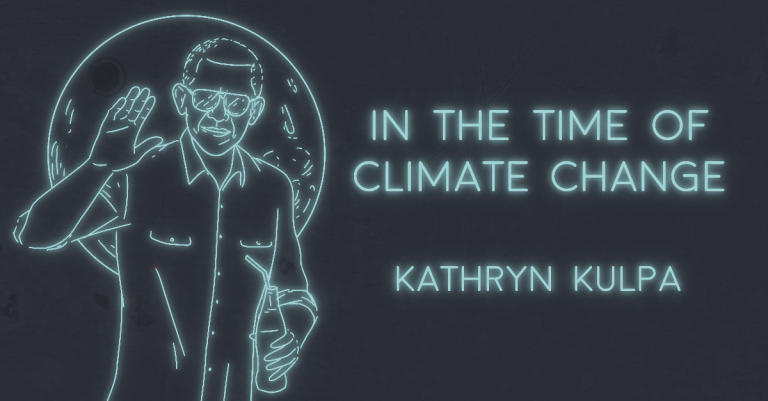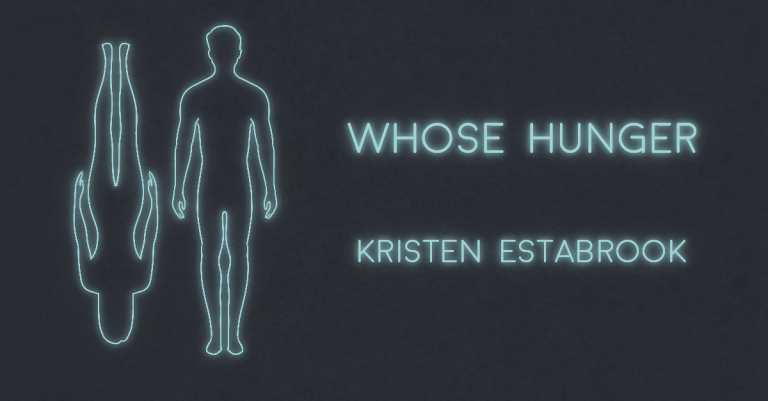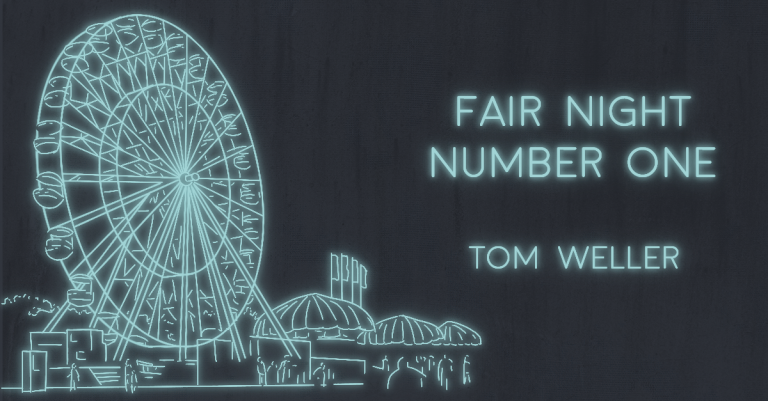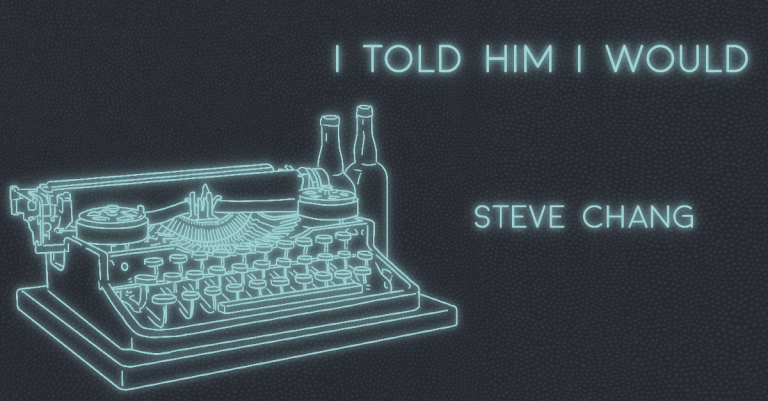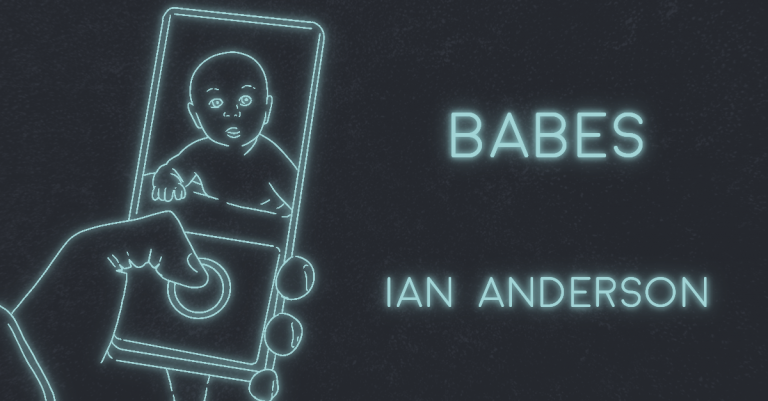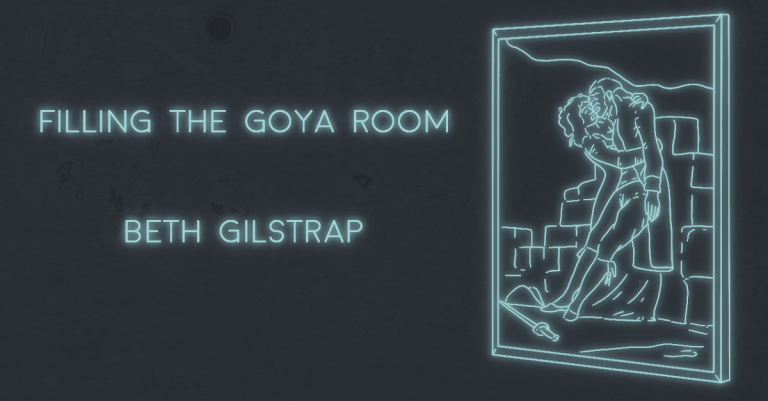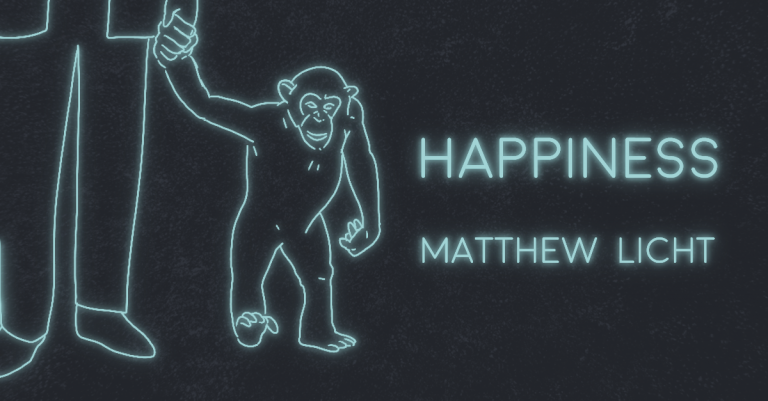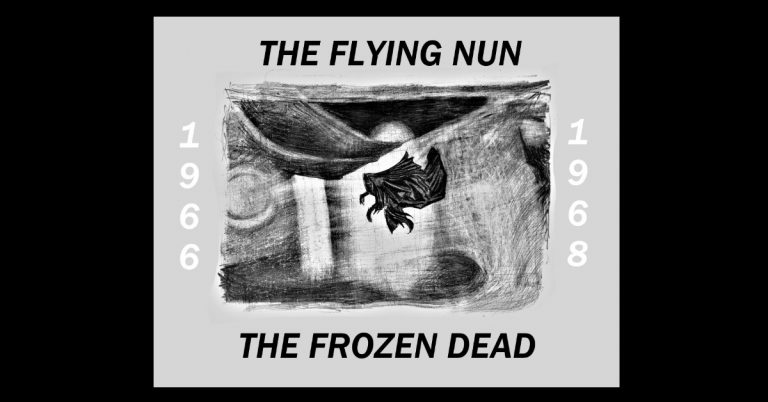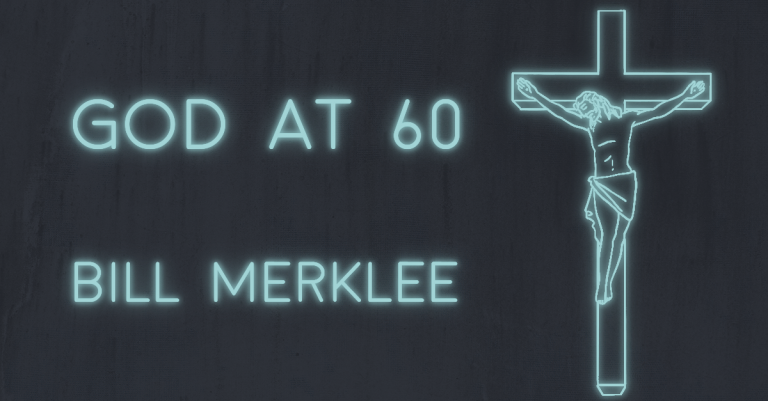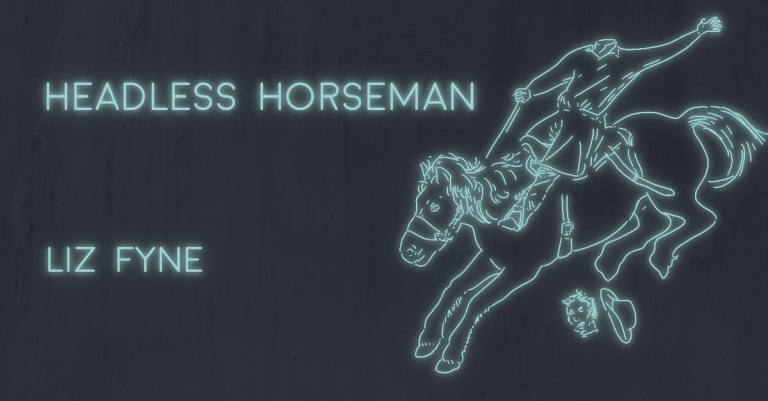
HEADLESS HORSEMAN by Liz Fyne
Years ago I had a terrible dream that my cat was guillotined. Afterward she rolled her eyes this way and that, and it came to me that as a head you have no options. Questions spin through your mind on their way out forever and you want to cry and flail but all you can do is roll your eyes.
In my case there was no guillotine. What happened was more of a spontaneous disconnect, because the junction was loose and my life was full of shaking. People say bronco busting can detach your kidneys, but no one warns about the psychic earthquakes from heartbreak—
I imagine standing in stalls at night stroking velvet nostrils of bronco horses, and I wonder how they keep from shaking off their tails and ears. Their eyeballs and toes. Being just a head I have much time to think and no place to go. At times I shift my gaze to my body that has drifted in the wrong direction, crawling on hands and knees. It has accumulated dust on its belly because it sleeps on the floor where no one cleans.
My body might be lost forever except the bedroom door is closed. So my headless corpus creeps in circles. At times it seems frustrated and bangs against the wall. Over and over.
Stop! I want to say. Come back and be with me! But I cannot speak so I just blink my eyes.
There is a love, a great and endless love, between the head and the body. Between the body and all its parts. This love keeps them together, all the bodies and heads and parts. But sometimes, in the event of heartbreak, that love grows weak. Parts loosen their relative grips. Things go horribly wrong.
Horses that seem normal in the rodeo ring search and search for their missing parts: tails left trampled in the dirt, ears that twitch in the sand. I learned this when I went back night after night, in my mind, to stroke the noses.
One nose in the sand, I stroked that one too. It blew hot horse breath from lungs lying nearby.
Time stands still in the rodeo ring but in the bedroom time is passing. My body and I need each other to live. We are locked together in a tiny space so there’s a chance we could reconnect. I tell myself this as day is night is day and my body crawls far and near.
Unless someone opens the door and my body creeps through.
I don’t know who is in charge of the door.
***
It’s a new experience for me, losing my head. New just as love is new and newborn and then still and stillborn. Then life becomes a thing of breaking. It becomes putrefaction that is yours to eat and eat and never stop.
It becomes thinking you walk the apocalypse road when in fact the Earth is new once more and the Horsemen fled long ago, leaving four tired nags destined for the meat wagon except the rodeo gets them instead.
But before that happens my body walks alone and headless and those sad mangy beasts bar the way. So my body climbs atop the black nag of War. With blood on its face and gore on its feet War horse lunges through history and my body feels—
The Crusades, Antietam, Gettysburg and Vietnam—
Until an old fart who owns the OK Rodeo in South Texas finds four abandoned horses, one running madly in circles, and he lures them with oats.
Such ignominy in their end.
***
All is fair in love and war. That’s what they say. Because really love and war are the same thing. Because now my body lies headless in the corner where it’s given up. It no longer crawls. It no longer rides the night like tales of yore. It rests in silence while I watch, blinking against the dust on my lashes.
It will not come back. It’s wandered too far and what did it find but blood and death. Hate and fear and everything that makes love impossible.
This is what we are, the casualties of discord. In the end it kills us all.

